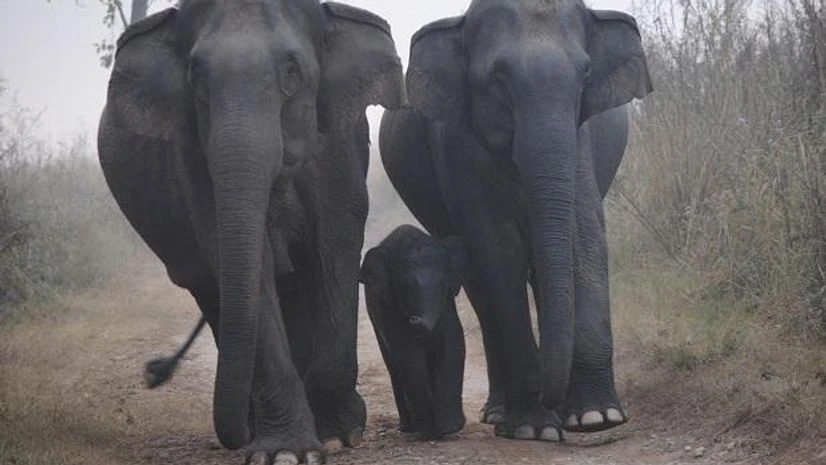In order to check the rising incidents of human-elephant conflict (HEC), West Bengal has launched a unique human-driven initiative, named "Gajamitra (Friends of Elephants)".
Under this scheme, the state Forest Department has started the process of appointing 600 local youth from HEC-prone pockets both in north Bengal as well as in south Bengal as these Gajamitras.
According to West Bengal Forest Minister Jyotipriyo Mullick, the recruitment process has already started. "Once the recruitment process is complete, the selected youths will be provided with android sets with the specially developed Gajamitra App installed there," he said.
The selected youths will procure advance information about the movement of elephant herds, alert the forest department and local people, so that preventive measures can be taken for avoiding HEC, the minister added.
It is learnt that 200 such Gajamitras will be deputed in the HEC-prone pockets in South Bengal, while 400 will be for North Bengal. "The number is double in case of North Bengal since numerically the incidents of HEC in North Bengal are much higher than in South Bengal," a senior forest department official said.
The districts in South Bengal to be covered under the Gajamitra scheme include West Midnapore, East Midnapore, Bankura, Purulia. The districts in North Bengal that will come under its purview are Darjeeling, Jalpaiguri and Alipurduar. "Despite lesser number of districts in North Bengal being HEC prone, still incidents on these counts are much higher," the official said.
Considering that incidents of HEC are higher in North Bengal, the forest department in association with the railways has earmarked another project on this count in the region. The project is installation of a sensitive sensor alarm system along the railway tracks running through the jungles of the Terai and Dooars region in north Bengal to prevent elephant deaths after colliding with speeding trains.
More From This Section
"This initiative is mooted considering that a vast portion of these railway tracks pass through the forests that have a number of crucial elephant corridors," the official said.
Explaining how this sensor alarm system will work, the official said that upon arrival of elephant herds near the rail tracks, the system will send alerts to the nearest railway station as well as to the nearest forest range office.
"On receiving the alert the nearest railway station will send an alert to the drivers of the trains moving in the region, so that they slow down and prevent collision with the tuskers. On the other hand, on receiving the alarms the forest department personnel posted at the nearby range office will take precautionary measures to ensure the elephant herd safely moves away from the railway tracks," the official said.
As part of the pilot project, the system will be installed covering a distance of approximately 50 km from Diana River Bridge at Nagrakata in Jalpaiguri district to Matharihat in Alipurduar. "This area is especially notorious for HEC," he said.
As per the latest statistics, during the last three years 11 elephant deaths due to train accidents have been reported from West Bengal.
--IANS
src/bg
(Only the headline and picture of this report may have been reworked by the Business Standard staff; the rest of the content is auto-generated from a syndicated feed.)

)
